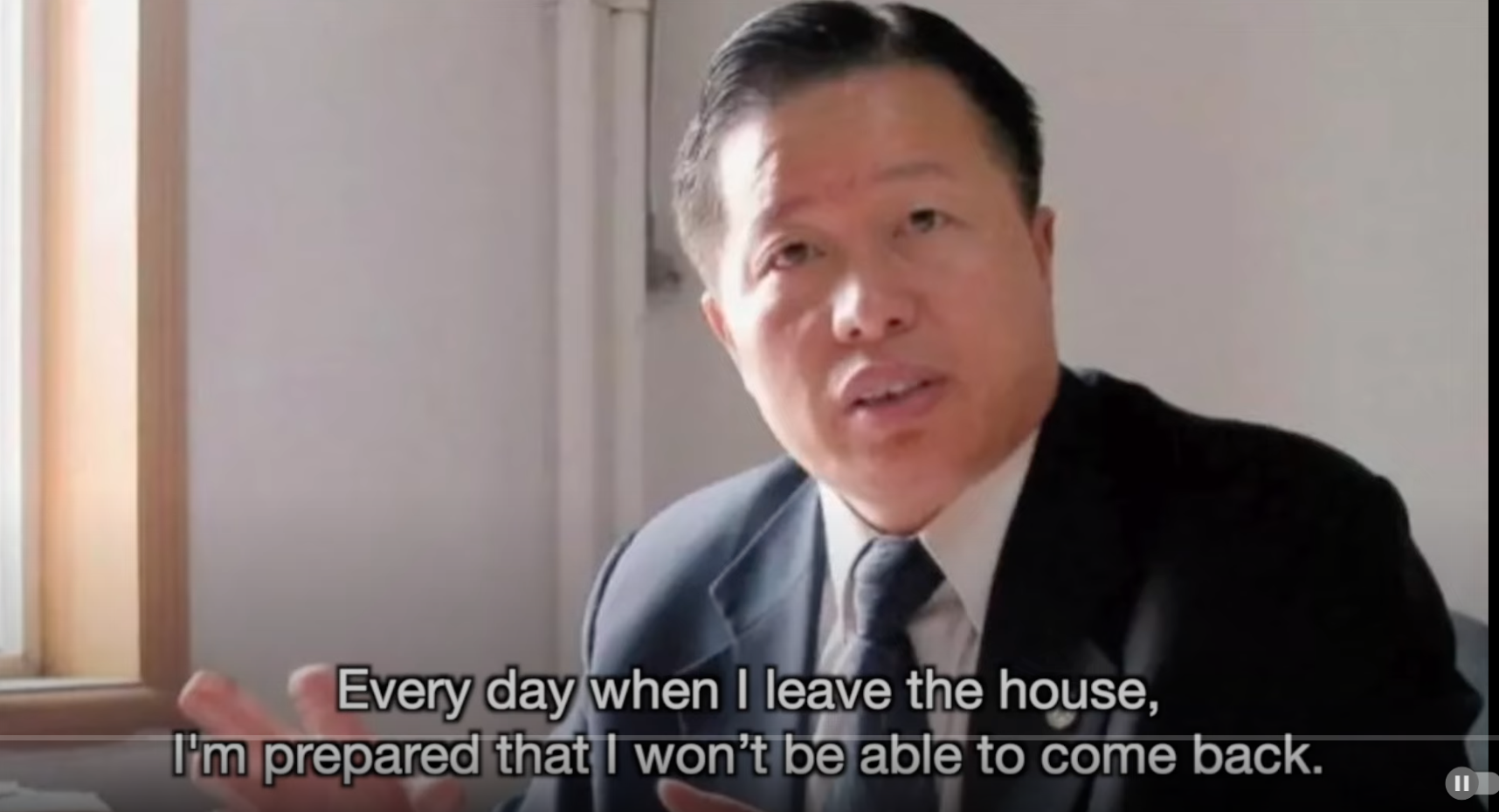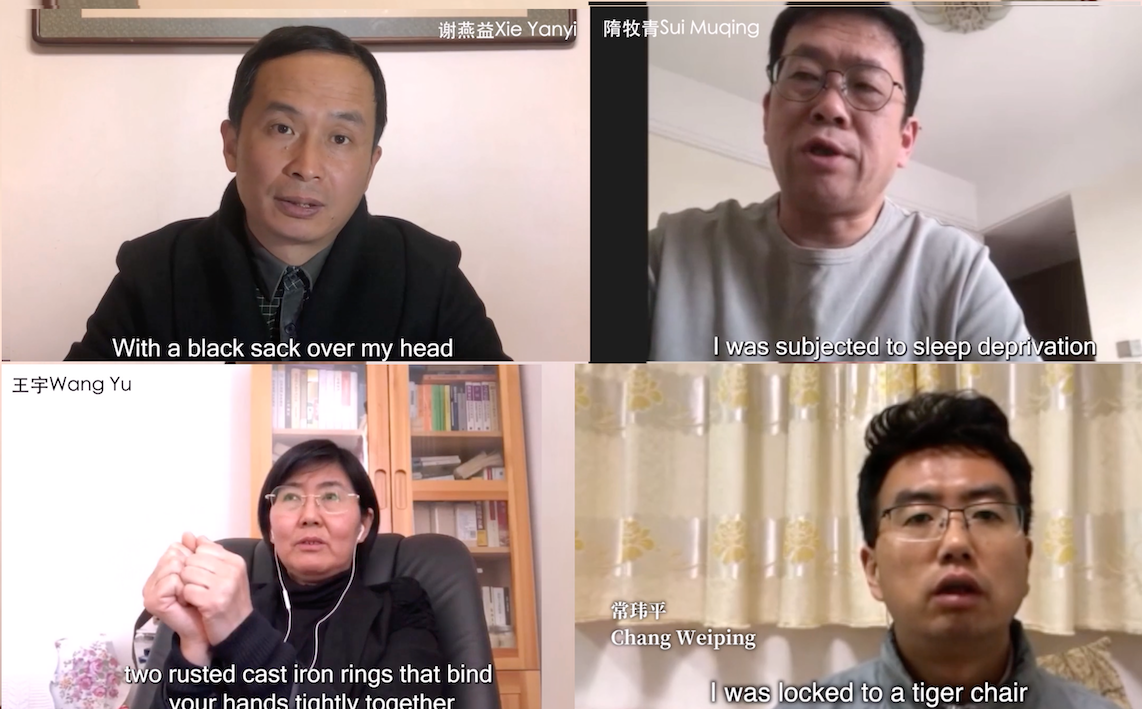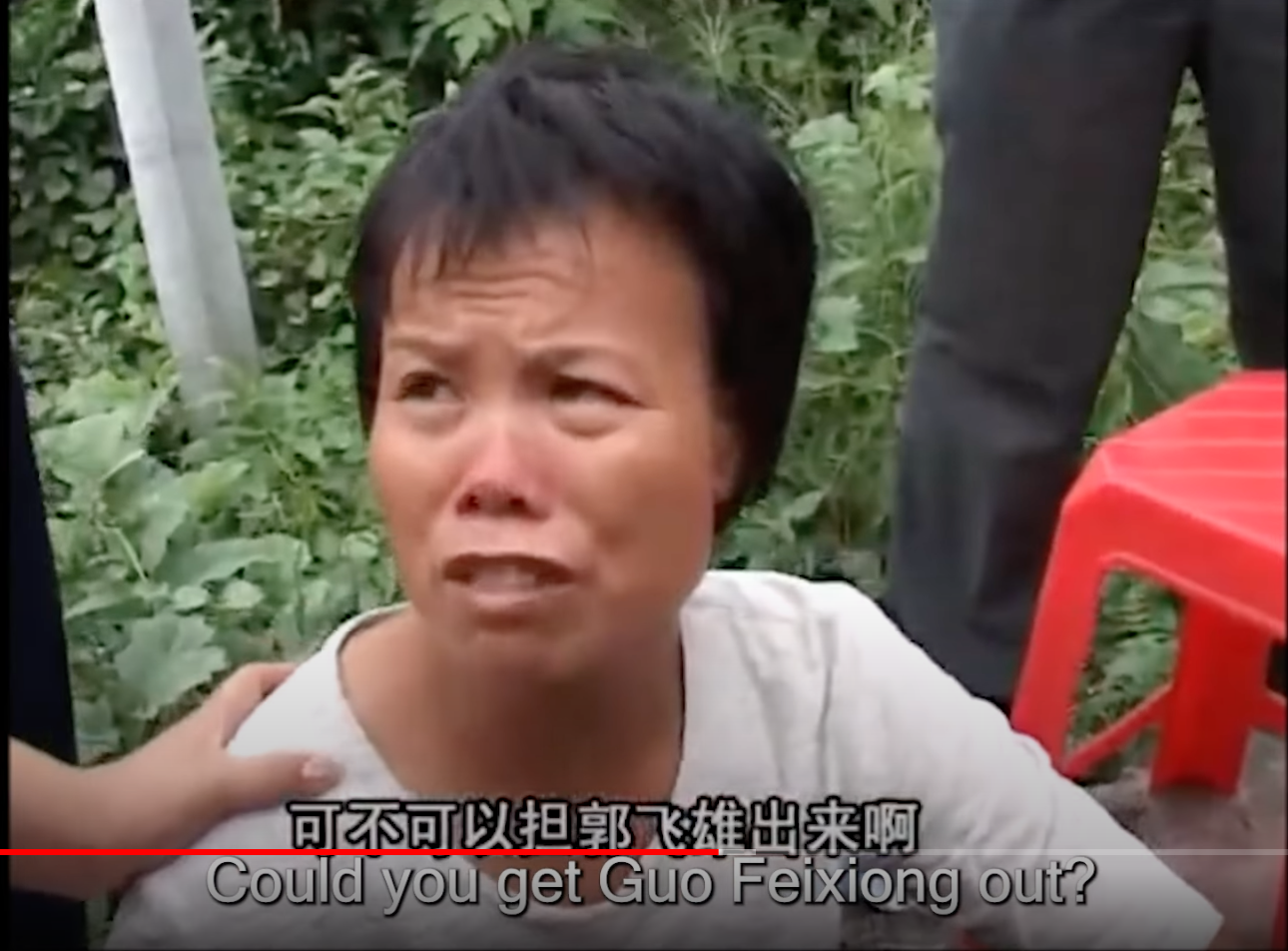New film charts the rise and fall of China’s brave human rights lawyers
Because our work at Safeguard Defenders is focused on promoting rule of law, many of the people we work with and write about are human rights lawyers.
One of the problems we face is a lack of good visual media to help get across who these people are and why what they do is so important. In our recent report about how the Chinese government has weaponized lawyers’ licenses by disbarring rights defenders (please see China’s Legal Blockade), we had a long list of the names of victims. But without better media, they risked remaining just that -- being a long list of names.
A new film by NGO ChinaChange.org, The Defenders: 20 Years of Human Rights Lawyers in China, viewable with English subtitles on YouTube, does an admirable job of converting this list of names into real men and women with hopes, dreams, frustrations and fears. Drawing on their own interview footage and news media clips, Chinachange gives the viewer a feel for who these people are as they explain on camera why they have dedicated their lives to fighting for justice in China.
This project is important for really understanding cases of injustice that these lawyers represented, why they were motivated to risk everything to defend them, and the terrible price many of them paid to do so. It is also a lesson to all of us, that we should make more of an effort to encourage good audio-visual material, however hard it is to obtain, about human rights defenders and their work in China. This medium is a powerful tool to engage audiences and help people better understand the issues.
The Defenders begins dramatically: a group of defence lawyers are behind a podium in court stridently raising objections. In a little over one hour, the documentary charts the emergence, rise and inevitable demise of the movement under China’s authoritarian system over the past 15-20 years.
 China’s human rights lawyers’ movement began in the early 2000s at about the same time as the media landscape and the Internet were also flourishing in China, little more than two decades following Reform and Opening. It was a promising start, but it was not to last.
China’s human rights lawyers’ movement began in the early 2000s at about the same time as the media landscape and the Internet were also flourishing in China, little more than two decades following Reform and Opening. It was a promising start, but it was not to last.
The lawyers took on emblematic cases: the death of young migrant worker Sun Zhigang, helping bring about the end of the hated Custody and Repatriation system. They defended farmers fighting the expropriation of their land; villagers fighting corrupt local officials; the authors of a book about dirty rural politics; persecuted Falunggong practitioners; people living with AIDS or hepatitis B who were victims of outright discrimination; families whose children were sickened by fake vaccines; Tibetans caught up in the 2008 protests; and protesters worried about pollution.
In those early years, the lawyers were full of hope.
Take for example Lawyer Pu Zhiqiang. “We just want to do a little good.” [Pu was given a three-year suspended sentence in 2015 and disbarred in 2016.]
And Lawyer Li Heping. “My name is Li Heping and I love being a lawyer.” Li disappeared during the 709 Crackdown, and was released two years later in 2017, extremely thin and with his hair a shock of grey.
The kidnappings, kickings, beatings, strippings, electrocutions with batons, disappearances and arrests were quick to come. Lawyers’ efforts in the courtroom were blocked by evidence concealed, the blocking of defence witnesses in court and judges who simply looked with scorn upon rights defenders.
Lawyer Gao Zhisheng, who is still disappeared to this day says: “Every day when I leave the house, I’m prepared that I won’t be able to come back.”
While official resistance had been building up over the years to the rights defense movement, the year 2013 marked a real turning point with the arrival of Xi Jinping at the helm. The struggle against the lawyers turned into an all-out war with the crushing of the New Citizen’s Movement in 2013 followed by the 709 Crackdown in 2015 (which is illustrated with some of the images from our graphic report on RSDL, Locked Up: Inside China’s Secret RSDL Jails and stories from our book People’s Republic of the Disappeared.)
One lawyer, Jiang Tianyong, had been beaten so badly by Chinese police, his legs were bloodied and bruised. To dispute leaked stories of his torture, as soon as his legs had healed and he could walk a few months later, the police forced him to pace up and down a corridor so that the footage could be aired on TV to “prove” the torture allegations were false.
“Everything they do is to trample your dignity on the ground and crush it,” Jiang remembers. “To live was worse than to die.”

Although Jiang is now free, his freedom is still restricted; he is kept under Non-Release Release at home, an illegal form of home arrest. [please see China’s False Freedom]
Despite all these impossible setbacks, the lawyers showed determination and defiance. Lawyer Wei Rujiu spoke passionately: “We just have to keep trying and trying until we force the national leaders – because the government is here to serve the people.”
Members of the public who were helped by these lawyers, are shown gathering outside court buildings where their heros were being tried in secret to show their support. One man calls Xu Zhiyong, who at the time was on trial, “the conscience of the people.”
 Guangdong villagers, distressed about Guo Feixiong, who had been arrested after helping them fight local corruption, plead with two other lawyers for help. “Could you get Guo Feixiong out?” asks one upset villager. “Save him before saving us.”
Guangdong villagers, distressed about Guo Feixiong, who had been arrested after helping them fight local corruption, plead with two other lawyers for help. “Could you get Guo Feixiong out?” asks one upset villager. “Save him before saving us.”
When the government realized that the 709 Crackdown did not crush the rights movement – so many of those who had not been detained had rushed to defend them – they began a new tactic, suspending and disbarring the remaining lawyers. (Please see China’s Legal Blockade). Dozens of lawyers were disbarred and several others were thrown into jail.
The document also reveals their human fragility.
Zhang Qingfeng, one of Xu Zhiyong’s lawyers, breaks down in tears as he recounts Xu’s speech in court.
Gao Zhiseng talks about when he was released from prison after a year of no contact with his family.
“Last night I was released and came back home. When I saw my wife and kids’ shoes in the same place they had always left them, that’s when I completely lost it. They are the most important people in my life.”
And Lawyer Wang Quanzhang recounting how he was tortured in RSDL during the 709 Crackdown weeps on camera: “They pinned me down like I was a pig.”
Chen Jiangang, who now lives in exile in the US describes how 709 victim Lawyer Xie Yang broke down in tears when he first saw Chen come to see him in the detention centre. At that point Xie had been disappeared for 18 months and had been subjected to grueling torture including intense mental anguish when police threatened his little daughter and his wife.
Only a handful of these men and women are still able to practice law. One has died (Li Baiguang), many are behind bars, one has been disappeared (Gao Zhisheng), while others have fled into exile.
Whether or not the Chinese government has completely crushed the human rights lawyers movement, this film says, these men and women have still left their mark on China.
Chang Weiping, one of those behind bars, appears in the final moments of the film to say: “I’m proud that we helped improve society.”